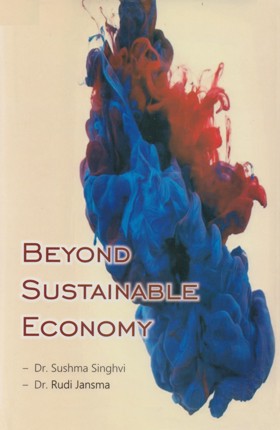Non-possession in the Quaker tradition
In the Quaker tradition, simplicity and compassion are held forth as prime values. In a scathing indictment of wealth, George Fox (1624-1691), the founder of Quakerism, brought forth a tract in 1658 titled "A Warning to all the Merchants in London and such as Buy and Sell with an Advisement to them to lay aside their superfluity and with it to nourish the Poor." He writes: "Ye merchants, great men, and rich men, what a dishonor is it to you to go in your gold and silver, and gold chains about your necks, and your costly attire.... How can you go up and down in your superfluity, and abound in your riches, and see the poor, blind, and cripples go in your street?" In 1668 he included the following edict in his "General Epistle on Property and Marriages:" "And keep your testimony against the world's vain fashions."
James Nayler (1618-1660), Fox's contemporary and "after Fox the best-known and strongest Quaker preacher" wrote "Does not the creature groan to be delivered from the vanity, customs and fashions of this generation? Is not the whole time of man taken up in service of the lusts and inventions which the Man of Sin has found out: inventions in meats and drinks, inventions in apparel, inventions in worships, in sports and pleasures, etc.? Men and women come into the world, and depart out of it again as though they were made for no other end but vanity and selfishness?"
During the next century, the Friends (Quakers) published various treatises that emphasize the simple life. In Epistles from the Yearly Meeting, printed in 1757, based on the Yearly Meeting of 1688, and signed by Richard Richardson, Friends are reminded:
Everywhere be put in mind to keep under the leadings and guidance of the Spirit of Truth, in their outward habits and fashions thereof; not suffering the spirit of the world... till it leads them from simplicity and plainness... [Guard against] a libertine wanton spirit... that lusteth after the vain customs and fashions of the world, either in dressing, habits or outward adornments...
Three years later, six months after the death of George Fox, Friends are again reminded:
To keep to Truth and plainness, in language, habit, deportment and behavior; that the simplicity of Truth in these things may not wear out not be lost in our days... to avoid pride and immodesty in apparel, and extravagant wigs, and all other vain and superfluous fashions of the world...
The most famous American Quaker, John Woolman (1720-1772), where people were truly humble... and were content with a plain way of life, that it had ever been attended with more true peace and calmness of mind than those have had who, aspiring to greatness and outward show, have grasped hard for an income to support themselves in it. For more on Woolman see the article: John Woolman American Quaker (1720-1772) in Section 8 [Special People] of this book.
Though the Quakers suffered for being an odd group, they maintained their ideal of simplicity, though its interpretation has changed over time.
 Dr. Christopher Key Chapple
Dr. Christopher Key Chapple
 Dr. Rudi Jansma
Dr. Rudi Jansma
